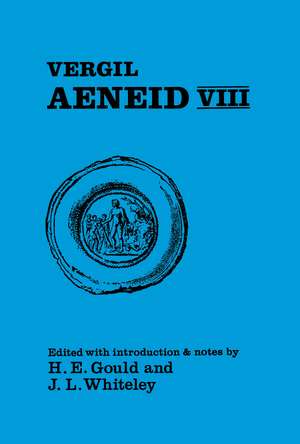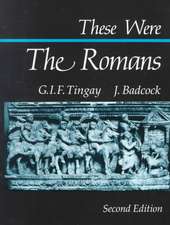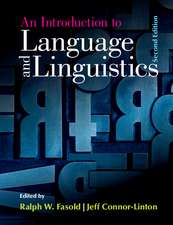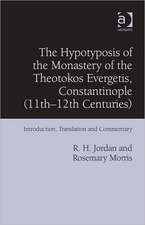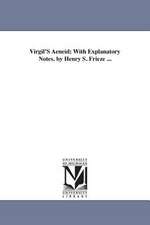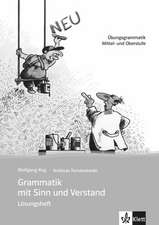Virgil: Aeneid VIII: Latin Texts
Autor Virgil Dr H.E. Gould, Dr J.L. Whiteleyen Limba Engleză Paperback – 27 aug 1998
Din seria Latin Texts
- 19%
 Preț: 152.28 lei
Preț: 152.28 lei - 24%
 Preț: 124.12 lei
Preț: 124.12 lei - 14%
 Preț: 132.45 lei
Preț: 132.45 lei -
 Preț: 142.77 lei
Preț: 142.77 lei -
 Preț: 152.19 lei
Preț: 152.19 lei -
 Preț: 167.08 lei
Preț: 167.08 lei - 14%
 Preț: 163.59 lei
Preț: 163.59 lei - 14%
 Preț: 149.70 lei
Preț: 149.70 lei - 14%
 Preț: 150.05 lei
Preț: 150.05 lei - 14%
 Preț: 151.38 lei
Preț: 151.38 lei - 7%
 Preț: 163.52 lei
Preț: 163.52 lei - 7%
 Preț: 200.79 lei
Preț: 200.79 lei - 18%
 Preț: 147.24 lei
Preț: 147.24 lei - 14%
 Preț: 165.03 lei
Preț: 165.03 lei - 14%
 Preț: 150.96 lei
Preț: 150.96 lei -
 Preț: 149.61 lei
Preț: 149.61 lei - 13%
 Preț: 200.08 lei
Preț: 200.08 lei - 14%
 Preț: 150.50 lei
Preț: 150.50 lei - 14%
 Preț: 197.59 lei
Preț: 197.59 lei - 13%
 Preț: 200.17 lei
Preț: 200.17 lei - 14%
 Preț: 170.95 lei
Preț: 170.95 lei - 14%
 Preț: 172.74 lei
Preț: 172.74 lei - 14%
 Preț: 150.59 lei
Preț: 150.59 lei - 14%
 Preț: 150.50 lei
Preț: 150.50 lei - 14%
 Preț: 164.59 lei
Preț: 164.59 lei - 14%
 Preț: 150.50 lei
Preț: 150.50 lei - 18%
 Preț: 169.03 lei
Preț: 169.03 lei
Preț: 150.96 lei
Preț vechi: 175.67 lei
-14% Nou
Puncte Express: 226
Preț estimativ în valută:
28.89€ • 30.24$ • 23.90£
28.89€ • 30.24$ • 23.90£
Carte tipărită la comandă
Livrare economică 05-19 aprilie
Preluare comenzi: 021 569.72.76
Specificații
ISBN-13: 9780906515396
ISBN-10: 0906515394
Pagini: 148
Dimensiuni: 140 x 220 x 9 mm
Greutate: 0.23 kg
Ediția:Reprint
Editura: Bloomsbury Publishing
Colecția Bristol Classical Press
Seria Latin Texts
Locul publicării:London, United Kingdom
ISBN-10: 0906515394
Pagini: 148
Dimensiuni: 140 x 220 x 9 mm
Greutate: 0.23 kg
Ediția:Reprint
Editura: Bloomsbury Publishing
Colecția Bristol Classical Press
Seria Latin Texts
Locul publicării:London, United Kingdom
Caracteristici
Also an appendix containing brief selections from Livy, Ovid and Horace relating to themes in the legends and history of Rome
Notă biografică
H.E. Gould edited Caesar Gallic War III, Cicero: De Amicitia and Five Roman Poets, all published by Bloomsbury.J.L. Whiteley taught Classics at Kilburn Grammar School, Middlesex and Selhurst Grammar School, Croydon, as well as producing an extensive range of Latin texts along with H. E. Gould.
Cuprins
ForewordPreface to this editionIntroduction:Publius Vergilius MaroThe Metre of the PoemMap of the MediterraneanText NotesVocabularyAdditional Bibliography
Descriere
Descriere de la o altă ediție sau format:
Surprising though it may seem, this is the first full-scale scholarly commentary in English on Virgil's Eclogues. Written between about 42 and 35 BC, these ten short pastorals are among the best known poems in Latin literature. They have inspired numerous poets - Sidney, Ronsard, and others - and at the same time have held enduring fascination among scholars for their sophistaicated and allusive blend of Theocritean idyll and contemporary Roman history. Professor Clausen's commentary will provide a comprehensive guide to the poems and the considerable scholarship surrounding them, and should be indispensable to all serious students of Virgil's poetry. Special attention is paid throughout the commentary to the important question of Virgil's use of Theocritus and other Hellenistic poets, with translations provided of all Greek passages. There are many new and illuminating observations on Virgil's poetic style and vocabulary, often with reference to his Latin predecessors: Lucretius, Catullus and (virtually unnoticed by previous scholars) Plautus. A third feature of the commentary is a new examination of the plants and trees in the poems - both their exact identification and their significance. There are helpful introductions to each poem, as well as a comprehensive general introduction to the Eclogues as a whole, in which Professor Clausen discusses the nature of ancient pastoral poetry, the structure of the Eclogues, and the composition of a pastoral landscape by Virgil and Theocritus.
Surprising though it may seem, this is the first full-scale scholarly commentary in English on Virgil's Eclogues. Written between about 42 and 35 BC, these ten short pastorals are among the best known poems in Latin literature. They have inspired numerous poets - Sidney, Ronsard, and others - and at the same time have held enduring fascination among scholars for their sophistaicated and allusive blend of Theocritean idyll and contemporary Roman history. Professor Clausen's commentary will provide a comprehensive guide to the poems and the considerable scholarship surrounding them, and should be indispensable to all serious students of Virgil's poetry. Special attention is paid throughout the commentary to the important question of Virgil's use of Theocritus and other Hellenistic poets, with translations provided of all Greek passages. There are many new and illuminating observations on Virgil's poetic style and vocabulary, often with reference to his Latin predecessors: Lucretius, Catullus and (virtually unnoticed by previous scholars) Plautus. A third feature of the commentary is a new examination of the plants and trees in the poems - both their exact identification and their significance. There are helpful introductions to each poem, as well as a comprehensive general introduction to the Eclogues as a whole, in which Professor Clausen discusses the nature of ancient pastoral poetry, the structure of the Eclogues, and the composition of a pastoral landscape by Virgil and Theocritus.
Recenzii
"...an altogether admirable commentary....really first-rate, distinguished work....Exemplary use of how parallels, borrowings and influences work..." Nicholas Horsfall, Vergilius
"The same piercing intelligence, command of Greek and Latin literature, and refusal to be satisfied with tired old formulations that are apparent in his earlier books and his numerous articles make this commentary a most valuable contribution, and I look forward eagerly to further discussions by Hardie of the issues raised by Aeneid 9. As much as anyone working on Latin poetry today Hardie is unpredictable, with a rare tendency simply to go in the direction the evidence before him indicates on any issue. When you see his name in a table of contents or card catalogue, take and read." Bryn Mawr Classical Review
"Hardie successfully incorporates the most valuable ancient and contemporary materials on Vergil to produce a more literary approach reflecting the insights and biases of critical work of recent decades. This edition will br appreciated by students and scholars alike." Classical World
"The same piercing intelligence, command of Greek and Latin literature, and refusal to be satisfied with tired old formulations that are apparent in his earlier books and his numerous articles make this commentary a most valuable contribution, and I look forward eagerly to further discussions by Hardie of the issues raised by Aeneid 9. As much as anyone working on Latin poetry today Hardie is unpredictable, with a rare tendency simply to go in the direction the evidence before him indicates on any issue. When you see his name in a table of contents or card catalogue, take and read." Bryn Mawr Classical Review
"Hardie successfully incorporates the most valuable ancient and contemporary materials on Vergil to produce a more literary approach reflecting the insights and biases of critical work of recent decades. This edition will br appreciated by students and scholars alike." Classical World
